
Guidedoc brings you five key cinematic pieces that portray moments and transcendental political figures in our history.
In case you didn't now, GuideDoc is a global curated documentary streaming platform. Watch the world's best award-winning docs from around the world. We have new movies every day.
Are you looking for related documentaries? You can watch online this political documentary.
Primary by Robert Drew (1960)
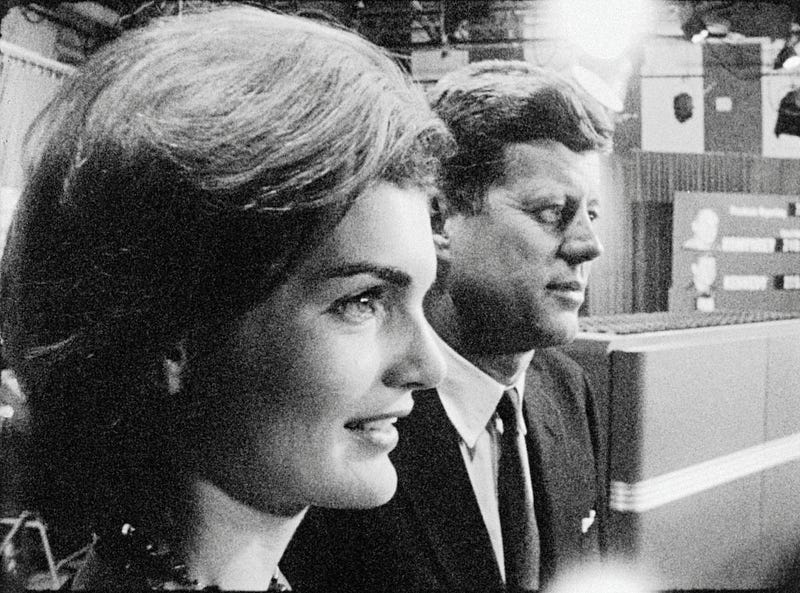
Filmed with the freedom and lightness that only the new cameras and sound recorders manufactured in the late 50s could provide, this film marked an aesthetic milestone in the way of making documentaries. In Primary the cameras operated by Richard Leacock and Albert Maysles follow the two candidates seeking the Democratic nomination as they interact with the hundreds of supporters crowded in individual political rallies during the primary of Wisconsin in 1960. The closeness achieved by the direct presence of the camera in the small moments in which the candidates sign autographs, hand out cards or shake the hands of their voters make a transcendental political event an intensely intimate experience.
How I learned to overcome my fear and love Arik Sharon by Avi Mograbi (1996)
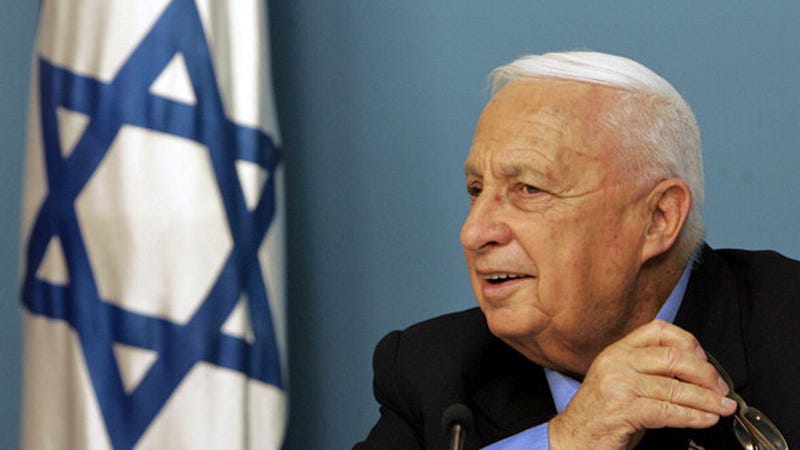
How I learned to overcome my fear and love Arik Sharon is about how in 1982, Israeli filmmaker Avi Mograbi refused to be part of the war against the Lebanon led by then-Defense Minister Arik Sharon, a position that honored his leftist thinking. Fourteen years later, in the midst of Sharon’s campaign for the 1996 presidential elections, Mograbi films this documentary about himself making a documentary about Sharon and how this process makes him overcome his opposition to the controversial Israeli leader and become a fervent adept of him. The repercussions of Mograbi’s research on Sharon’s life directly affect his intimate life when his wife, who has always supported him in his progressive convictions, leaves him because she is disappointed by the abrupt ideological turn of her husband. In a documentary that has a lot of satire and fiction, Mograbi’s metalinguistic maneuver manages to put on the table the political polarization in Israel, where the ideological extremes scramble on a thin rope.
Five Broken Cameras by Emad Burnat (2011)
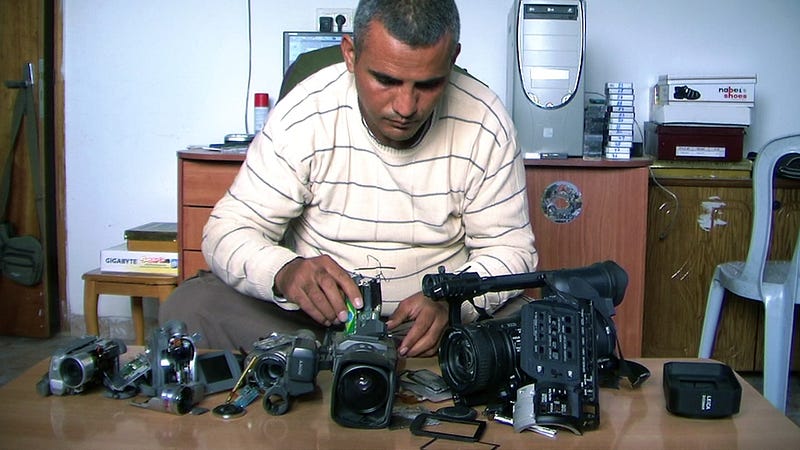
Since he bought a small camera to record the first days after the birth of his fifth child, Palestinian Emad Burnat intends to film the moments of his family’s daily life with particular dedication. His hobby is soon known by his neighbors who begging to request his services in the village of Bil’in, located on the west bank occupied by Israel and where he and his family have always lived. But when Israeli troops invade and delimit a land where they will later build one of the hundreds of their residential settlements, Burnat’s camera becomes an instrument of resistance to record the flagrant violation of his land´s sovereignty. Despite not being a very political person, Burnat becomes so involved in the demonstrations and acts of resistance of his people that he gets seriously injured and ironically his life is saved by the doctors of an Israeli hospital. The title of Five Broken Cameras refers to the five cameras broken by the intensity of a struggle that Burnat insisted on filming over the course of five years.
The Battle of Chile by Patricio Guzmán (1975)
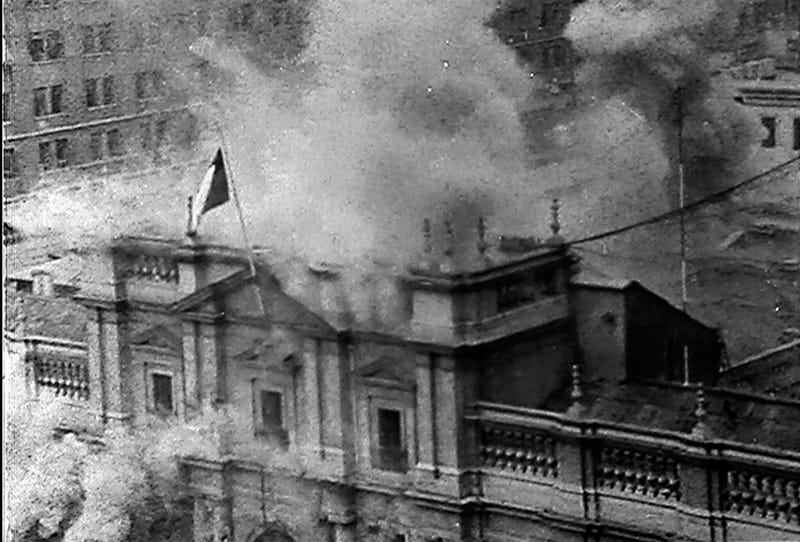
This trilogy on the last year of the democratic government of the socialist Salvador Allende in Chile is considered one of the great political films of all time. Filmed by a team of independent filmmakers who were later persecuted by the military regime of Aususto Pinochet, The Battle of Chile portrays the escalation in Chile´s political climate between October 15 of 1972 and September 11 of 1973, the day in which the coup was consummated with an aerial assault to the presidential palace, one of the iconic scenes we witness in the film. The documentary´s editing took seven years to complete and was complemented by the donation of forty-four feet long 16mm black and white film by French filmmaker Chris Marker. The first two chapters “The Insurrection of the Bourgeoisie” and “The Coup d’Etat” focus on the political crisis prior to the coup, and the third, “The Popular Power” captures the different processes of organization and discussion among the workers and popular movements that fueled the socialist revolution. This documentary is still a victim of censorship in Chile, where it has not been released, broadcast on public television or sold on DVD.
The Triumph of the Will of Leni Reifentahl (1935)
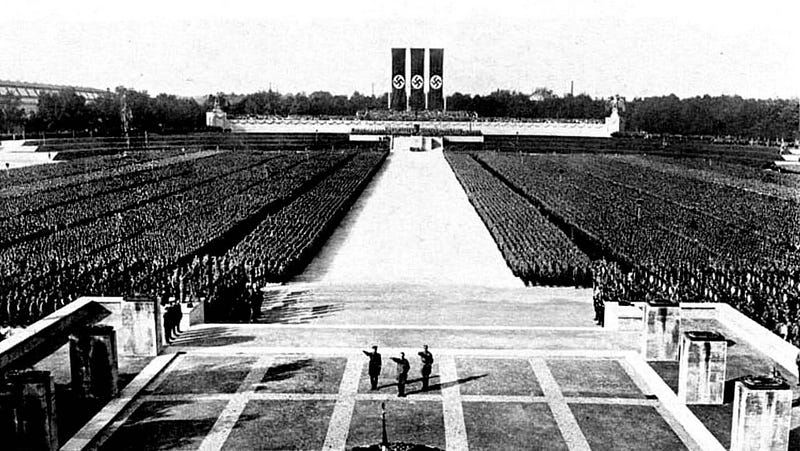
Adolf Hittler entrusted to Leni Riefenstahl the filming of the majestic Nazi convention of 1934, a proposal that the German filmmaker, according to her own testimony, accepted with the condition that it was her last assignment under the Third Reich´s government. As a result of this supposed agreement is born one of the most prolific films in terms of cinematic form that the history of cinema has seen, especially if it is considered that the object of filming is in fact a traditional party convention. In The Triumph of the Will Reisfenstahl uses all her artistic skills to conceive aerial shots in vertical movement that capture the perfect geometry of the masses of the marching soldiers, circular rails that surround the great leader during a fervent speech and an emotive montage that portrays the cult of personality, the order and discipline that characterized Nazism. The film has been victim of attacks due to its romantic positioning on the Nazi phenomenon and at the same time it is object of study for its prodigious construction of a cinematic discourse.
Watch more essential documentaries on Guidedoc.